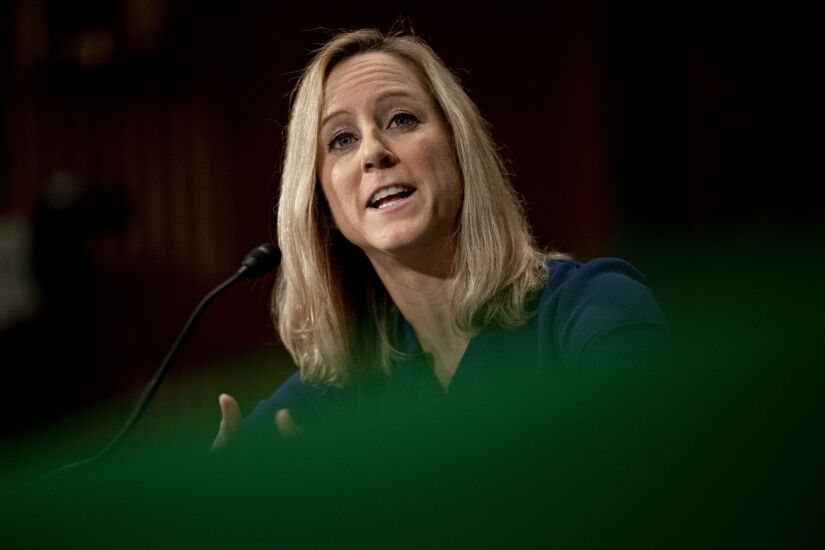The Consumer Financial Protection Bureau’s response to the coronavirus pandemic has included relaxing or eliminating rules so financial institutions can focus on aiding consumers.
Continuing a regulatory relief focus for the agency that preceded the crisis, CFPB Director Kathy Kraninger said in March that the agency planned to deliver “temporary and targeted regulatory flexibility” to financial firms.
“We recognize that many institutions are facing operational challenges due to COVID-19, and the priority must be responding to consumers facing nearer-term issues,” Kraninger said
Banks had lobbied for relief — which the CFPB delivered — in two recent rulemakings already in linefor rollbacks before the crisis hit.
One of Kraninger’s first actions was to
Kraninger also has made clear in policy statements that financial institutions will not face enforcement actions or be cited in supervisory exams if they make good-faith efforts to help consumers on a number of different fronts.
At the same time, Kraninger has repeatedly said that the CFPB will vigorously enforce consumer finance laws, including protecting consumers from unfair, deceptive or abusive acts or practices. She also has encouraged consumers and whistleblowers to file complaints.
Here are five ways the bureau is attempting to help institutions deal with the crisis by relaxing regulatory expectations.









